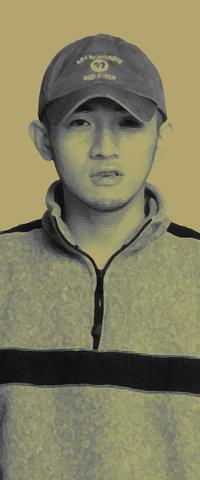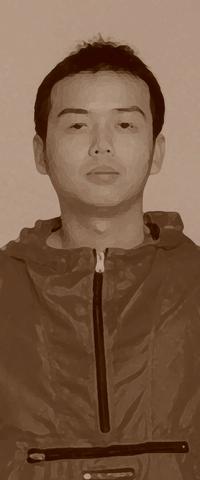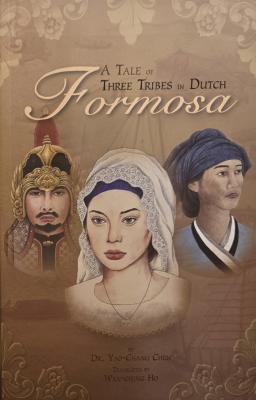After a hiatus of nearly three years, the Taipei band Sticky Rice (糯米糰) made a welcome return to the local music scene late last year with the band's second album Bird King (青春鳥王).
Packed with different styles ranging from electronica and funk to break beats, it was a far cry from the band's 1997 eponymous debut Sticky Rice (糯米糰), on which the band blasted its way through a collection of tunes packed with guitar-driven rough-and-ready musical mayhem.
Formed in the mid-1990s, Sticky Rice hit the local music scene at a time when the nation's now maturing indie scene was in its infancy. Led by lanky vocalist, Ma Nien-hsien (馬念先), who sported a mohawk hair-do and wore distinctive retro glasses, the band proved an instant hit, selling out many of the city's alternative music venues.

PHOTO: COURTESY OF MAGIC STONE
As the band built up a following among the indie crowd, Ma and his three bandmates -- Chen Chi-han (沉其翰) on guitar, Hung Chih-li (洪峙立) on drums and Yu Guang-yao (余光耀) on bass -- caught the attention of the movie industry. Director Chen Yu-hsun was so taken by the material on the album, that he invited them into the studio to record the soundtrack for his 1997 film Love A GoGo (愛情來了). The soundtrack was later nominated for Best Musical Score at the 1997 Golden Horse Awards.
Just as the band looked set to become one of only a handful of local acts to rise from garage band status to pop stars their country called. The lads were shipped to boot camp to begin their military service, where they remained until early last year.
The band may have been dormant while Ma, Chen, Hong and Yu were doing push-ups for the nation, but the local music industry didn't forget Sticky Rice. Shortly after being demobilized the band was back in the studio and recording a demo tape. Magic Stone signed them soon after.

PHOTO: COURTESY OF MAGIC STONE
"We sent demos to three labels and heard back from three of them pretty quickly, which was a real surprise," Ma said recently. "We were looking for a certain amount of freedom in the studio to record the music we wanted, rather than what the record label told us to."
Far from numbing the senses, military discipline appears to have paid dividends, as last year's Bird King attests. The album shows a tighter and musically more mature Sticky Rice. Thankfully, the military didn't take away the band's dead-pan sense of humor. The electronica/funk song Aluba Aliba, for example, tells of a game in which young boys compete to see who can run, jump and then slide across the ground and come to a halt closest to the trunk of a tree without damaging their manhood.
Any gig Sticky Rice headlines or even makes the briefest of appearances at is guaranteed to be a rowdy affair. The band doesn't offer stand-up comedy routines full of biting social commentary like their peers, Clippers (夾子電動大樂隊), but they have their own style of onstage nonsense. When the band kicks into a funk tune in the style of Sly and the Family Stone, the chances are the tune won't stay that way for long. The band will suddenly up the tempo and before audiences know what's happening an onslaught of electronica twists and guitars turns the tune into a thumping dance song that whips crowds into a frenzy.

PHOTO: COURTESY OF MAGIC STONE
While Sticky Rice cut its teeth on the fringe of the local alternative scene, the band remains adamant that they are not, and never have been, an "alternative" band. They are pop stars, they say, albeit rather eccentric ones.
"We started out playing venues such as Roxy Vibe and Underworld, and have played at several Spring Screams, but I wouldn't call us alternative. We never touched politics like LTK (濁水溪) or Clippers and we steered away from guitar rock like Quarterback (四分衛)," said Hong, the band's drummer. "If people have to label us, then I think that an off-the-wall pop band would be a much better tag."
Performance Notes:

PHOTO: COURTESY OF MAGIC STONE
What: Sticky rice Live (糯米糰)
When: Tomorrow 7pm.
Where: @Live Disco, 3F, 15 Hoping W. Rd., Sec. 1 (和平西路一段15號3F).
Tickets: NT$400 at the door.

As Donald Trump’s executive order in March led to the shuttering of Voice of America (VOA) — the global broadcaster whose roots date back to the fight against Nazi propaganda — he quickly attracted support from figures not used to aligning themselves with any US administration. Trump had ordered the US Agency for Global Media, the federal agency that funds VOA and other groups promoting independent journalism overseas, to be “eliminated to the maximum extent consistent with applicable law.” The decision suddenly halted programming in 49 languages to more than 425 million people. In Moscow, Margarita Simonyan, the hardline editor-in-chief of the

Six weeks before I embarked on a research mission in Kyoto, I was sitting alone at a bar counter in Melbourne. Next to me, a woman was bragging loudly to a friend: She, too, was heading to Kyoto, I quickly discerned. Except her trip was in four months. And she’d just pulled an all-nighter booking restaurant reservations. As I snooped on the conversation, I broke out in a sweat, panicking because I’d yet to secure a single table. Then I remembered: Eating well in Japan is absolutely not something to lose sleep over. It’s true that the best-known institutions book up faster

Though the total area of Penghu isn’t that large, exploring all of it — including its numerous outlying islands — could easily take a couple of weeks. The most remote township accessible by road from Magong City (馬公市) is Siyu (西嶼鄉), and this place alone deserves at least two days to fully appreciate. Whether it’s beaches, architecture, museums, snacks, sunrises or sunsets that attract you, Siyu has something for everyone. Though only 5km from Magong by sea, no ferry service currently exists and it must be reached by a long circuitous route around the main island of Penghu, with the

The excellent historical novel by Chen Yao-Cheng (陳耀昌) is a gripping tale of Taiwan in the 17th century, called Formosa at the time, told from the perspective of characters representing the three major ethnic groups (the “tribes” mentioned in the title): the indigenous community, the Dutch and the Chinese. Another element that makes this book stand out is the female perspective, as two of the main protagonists are Maria, the daughter of the Dutch missionary Hambroeck, and Uma, an Aboriginal woman with a strong character. The main Chinese character is Chen Ze, a man in charge of a merchant ship